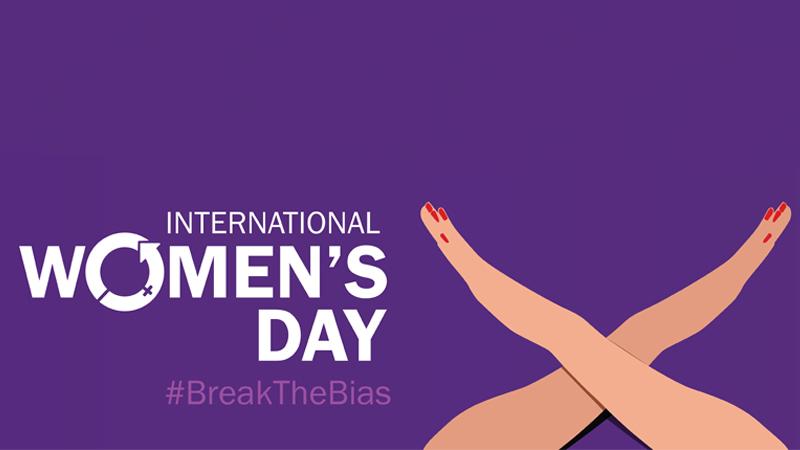At the University of Westminster, diversity, inclusion and equality of opportunity are at the core of how we engage with all stakeholders, and the University is fully committed to enabling a supportive learning and working environment for all. As part of our celebrations to mark International Women’s Day, we take a look at examples of research by Westminster colleagues focused on representation of women in a variety of disciplines.

Professor Pippa Catterall – How women use space
Research led by Professor Pippa Catterall, Professor of History and Policy, entitled ‘Changing the Narrative – Planning for How Women use Space’ is an analysis of the current disadvantages women face in public space, as well as recommendations of how planning policy and practice can address these issues. The research derives from Professor Catterall’s ‘Queering Public Space’ project, which analysed how public space is designed and organised, as well as identifying ways to make it safer, more inclusive and welcoming for LGBTQ+ people.
Public consciousness about women’s safety has been raised in recent years by cases including Sarah Everard and Sabina Nessa. Beyond high profile cases, there are also everyday aspects of the way in which space is organised that impact differently on women. Therefore, Professor Catterall’s key objective of this research was to find ways of designing and organising public space to make it more comfortable for all members of the public, not least women.
The researchers identified a number of ways in which interventions can help to make public spaces safer and more welcoming. They noted that softer, more ambient lighting that allows people to distinguish shapes and colours is safer and more welcoming, and that more variety in design also contributes to more social capital on the street, and the relative safety and inclusivity of the passive surveillance it provides.
The project has already led to the University of Westminster signing up to the London Women’s Night Safety Charter, and the researchers have made a number of recommendations to planners, architects and designers. Their work has also been taken up in Australia, where a parallel project is currently underway.
Sally Anne Gross – Under-representation of women in music
As part of her work as a Principal Lecturer in Music Business Management and a music industry practitioner, Sally-Anne Gross explores gender in the music ecosphere in a variety of different research areas.
Influenced by gender debates sparked by the #MeToo movement, Sally Anne Gross’ new research forthcoming in Summer 2022 highlights the structural gender inequality in the music industry. The project hears directly from an ethnically diverse group of women in the music industry, which is a continuum of Gross and Dr George Musgrave’s research on the relationship between music and mental health. It aims to contribute towards the growing body of research into the working conditions within the music industry by considering the challenges of access to the industry by women and the challenges this poses.
Through their research into music and mental health, Gross and Dr Musgrave revealed that women face multiple challenges including sexual harassment and violence, ageism and misogynistic messages on social media. These were often directed towards women’s appearances, having a direct impact on their anxieties towards body image and acceptance. Her research also looks into the impact of digital technology and social media and its impacts on the lives of women with musical ambitions.
Sally Anne Gross’ earlier work entitled ‘Let’s Change the Record’ investigates the inequality and lack of diversity within the music industry through a ‘studio lock in’ event, where 22 women took over a recording studio to confront head-on the issues of gender dynamics in recording studio environments. They highlighted the need to radically address the issues faced by those identifying as female in the audio technology and music production space.
Dr Spinder Dhaliwal – Women in business
Dr Spinder Dhaliwal, Reader in Entrepreneurship, has long researched women in business, particularly Asian women in the UK.
Her earliest work ‘Silent Contributors – Asian Female Entrepreneurs and Women in Business’ discusses how little attention is paid to Asian women in business, and seeks to redress the balance of focus on male and female Asian entrepreneurs by focusing on the contribution of Asian women to both entrepreneurship and the management of family business.
The paper sheds light on a number of neglected issues within Asian entrepreneurship, including the emerging roles, responsibilities and relationships of Asian women in business, cultural proprieties and highlighting the needs and diversity of ethnic minorities in business to policy makers.
Dr Dhaliwal’s more recent research titled ‘Training Women to Win’ set out to identify good practice in terms of available support, as well as to produce and pilot recommendations that will improve business support and training for women. As a result, the paper aimed to consider some of the key challenges faced by women seeking to start a new business. Through the project, the researchers found that business support providers tend to be target driven, and thus supply is not always geared to demand. Therefore, the target culture leads to a ‘one size fits all’ strategy for women in business.
Find out more about research at the University of Westminster.





